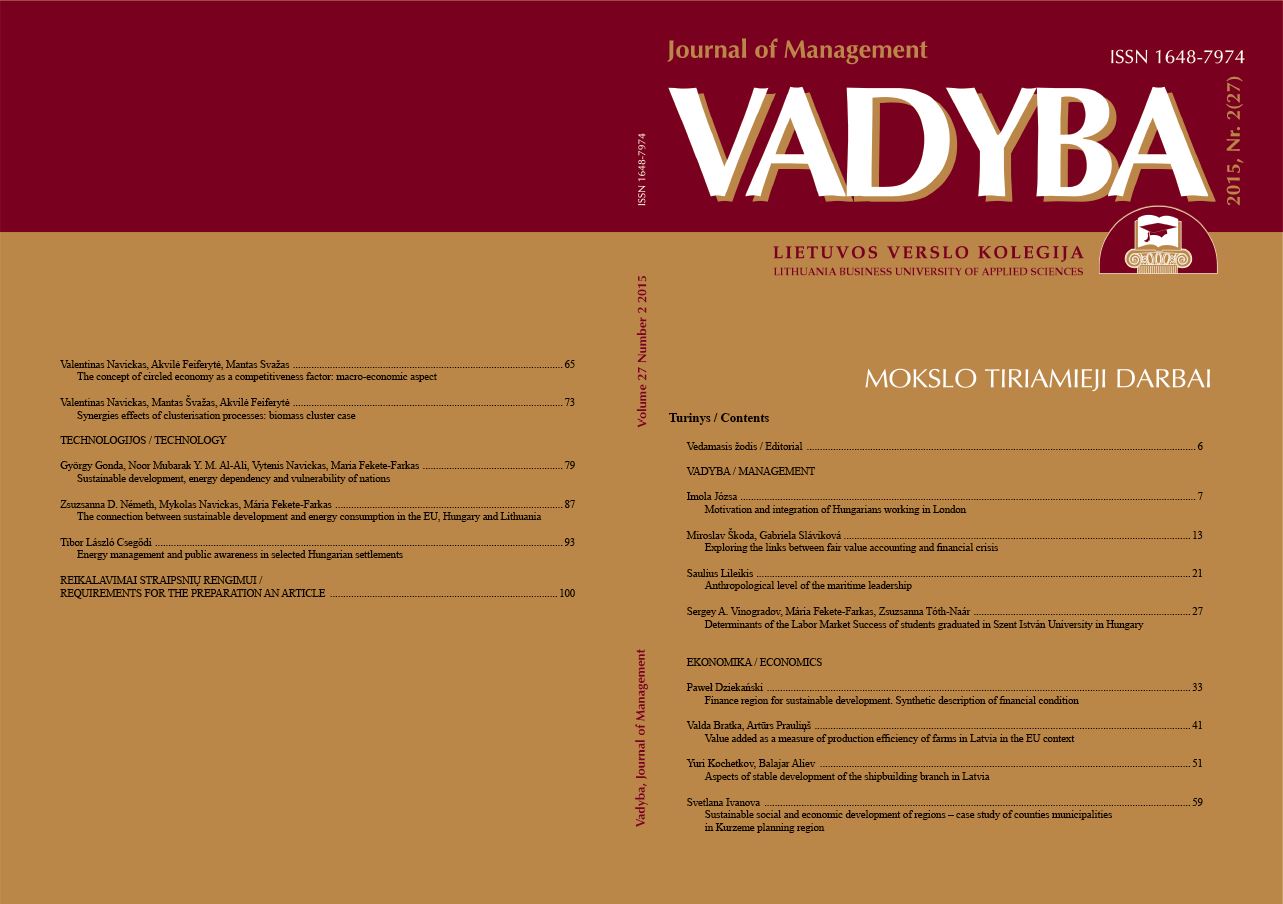EXPLORING THE LINKS BETWEEN FAIR VALUE ACCOUNTING
AND FINANCIAL CRISIS
EXPLORING THE LINKS BETWEEN FAIR VALUE ACCOUNTING
AND FINANCIAL CRISIS
Author(s): Miroslav Škoda , Gabriela SlávikováSubject(s): Economy, National Economy, Micro-Economics, Accounting - Business Administration
Published by: Lietuvos verslo kolegija
Keywords: fair value accounting; financial crisis; measurement; valuation; accounting income; economic income
Summary/Abstract: The conventional accounting system favours the usage of amounts at which the elements of financial statements were measured at the date of their initial recognition. Historical costs possess some advantages; objectivity and conclusive evidence are in the first place. They can serve as a prudence measure for the protection of entity’s creditors. Unfortunately, historical costs are not suitable and relevant for economic decision-making and they deteriorate the stewardship function of accounting from the view of entity’s owners. As a reaction to those disadvantages standard setters prefer measurement attributes based on current market information and assumptions for preparing the financial statements by publicly responsible entities. Fair value is considered the most useful market characteristics as far as measurement in financial reporting concerns. The purpose of this paper is to show the weaknesses and disadvantages of using fair value measurement in accounting and to explore the links between fair value accounting and financial crisis in 2008-2009.
Journal: VADYBA
- Issue Year: 27/2015
- Issue No: 2
- Page Range: 13-20
- Page Count: 8
- Language: English

